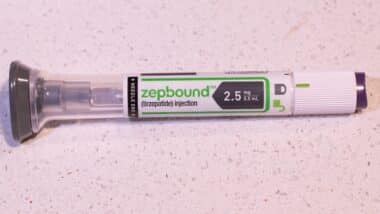 It seems that it makes little sense for an insurance company to total a motorcycle that has only sustained minor damage in an accident. However, if the cost of those repairs exceeds what the insurer determines to be the motorcycle’s market value, it will make the decision to write it off as a total loss and offer a settlement in the amount of that value.
It seems that it makes little sense for an insurance company to total a motorcycle that has only sustained minor damage in an accident. However, if the cost of those repairs exceeds what the insurer determines to be the motorcycle’s market value, it will make the decision to write it off as a total loss and offer a settlement in the amount of that value.
How is the Value of a Totaled Motorcycle Determined?
Insurance companies generally rely on the National Automobile Dealers Association Blue Book (NADA) to make such determinations. They will also do some research into what similar motorcycles are selling for in the area. This information gives a fair approximation of the damaged machine’s “fair market value.”
Why Are They Offering Less Than I Owe On It?
A total loss decision on a vehicle may result in a payment that is less than what is owed. Unfortunately, being “upside-down” on a vehicle – owing more on it than it can be sold for – is far from uncommon. What you may owe on a machine that has been damaged beyond repair, or one that would cost more to restore than it would to replace, is irrelevant when it comes to what the system considers to be “fair market value.”
Additionally, when an insurer decides to total a motorcycle, they do not consider how much you have spent in upgrades and modifications. So, as far as an insurance company is concerned, just because you added $1000 in accessories, chrome, and other gadgets does not mean the bike is worth $1000 more. Further, some consumers say that insurance companies do not cover fees in a total loss claim.
If an Insurer Decides to Total a Motorcycle I Own, How Can I Avoid Being “Upside Down”?
If you are financing a motorcycle purchase, it is a smart idea to get what is known as “gap” insurance – and in fact, the dealer may require it. For example, suppose you purchased your motorcycle for $20,000. Three years later, the “fair market value” has dropped to $17,000. That is what you will receive from the insurance company if the cost of repairs exceeds what that value is determined to be, meaning you’ll still owe $3,000 on a totaled machine. A gap policy would cover that difference.
Another way to avoid the upside-down scenario is to insure your bike for what is known as its “scheduled” or “stated” value. This differs from an “actual cash value” (ACV) policy and can be very useful when the market or replacement value of a vehicle is difficult to determine. Essentially, according to The Balance, you are insuring the motorcycle for what you say it is worth. It costs more, and there is usually a high deductible, but it can be less expensive than winding up having to make payments on a machine you no longer own.
How Else Can I Protect Myself?
If you do find yourself in a situation in which you may be “upside-down” after a motorcycle was totaled, you may have some other options to get additional compensation. This won’t necessarily mean that you will make up the difference, but it could put you in a better situation after the accident.
If you decide against the extra expense of a stated value policy, you might consider adding a rider to cover any accessories or modifications you may make to your bike. In this case, be sure to retain any records and receipts. You can also have an attorney review your insurance policy and make recommendations.
Total loss motorcycle claims may also cover not only the bike, but other personal items. This can include gear like helmets. Ask your insurance adjuster if these items can be covered in your claim. If not, you may be able to see if the other party’s insurance could cover a claim for these items, if there was another party involved in the accident.
Unfortunately, a motorcycle crash severe enough to warrant the bike being totaled often comes with injury. Your insurance may also be able to help cover medical costs you incurred as a result of injuries from your motorcycle accident. If your insurance adjuster asks if you have suffered any injuries, it is important that you are clear and certain of your condition. Don’t say “I’m fine” unless you have been checked out by a doctor. Instead, it may be better to say that you are not sure of the extent of your injuries.
If you say that you did not suffer any injuries and then later discover that you were injured in your motorcycle accident, the insurance company could use your earlier statement against you to deny your claim for further compensation for your injuries. It is important to have you injures fully documented to make a claim.
Join a Free Total Loss Car Accident Class Action Lawsuit Investigation
If you were insured under an auto insurance policy, experienced a total loss car accident, and were not reimbursed for sales tax and other fees by your insurance company in the last five years, you may qualify to join a total loss car accident class action lawsuit investigation.
ATTORNEY ADVERTISING
Top Class Actions is a Proud Member of the American Bar Association
LEGAL INFORMATION IS NOT LEGAL ADVICE
Top Class Actions Legal Statement
©2008 – 2025 Top Class Actions® LLC
Various Trademarks held by their respective owners
This website is not intended for viewing or usage by European Union citizens.














